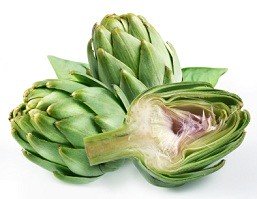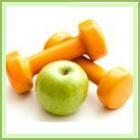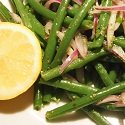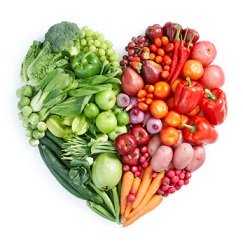Lose Weight
![]() Calories in Food
Calories in Food
![]() Calories in Vegetables
Calories in Vegetables
![]() Calories in Artichokes
Calories in Artichokes
Calories in Artichokes,
Artichoke Nutrition
How many calories in Artichokes? See below, the Artichoke calories for the different serving sizes. We provide you with the Artichoke nutrition facts and the Artichoke benefits to help you to lose weight and eat a healthy diet.
The Artichoke or Globe Artichoke is surprisingly a member of the thistle family. It is very low in fat and provides a good source of folate (folic acid), vitamin c, calcium, magnesium and phosphorus. They are also a good source of fiber and are low in calories.
The Artichoke increases bile secretion, and is therefore thought to lower cholesterol. It is also thought to stimulate the appetite, as it increases the flow of digestive juices and speeds up the digestion of food. So, if you are on a weight loss program, you may wish to skip this vegetable or limit your intake.
We have calorie and nutrition tables below. See our vegetable calories comparison chart to compare the calories in Artichokes with the other calories in other vegetables.
Also, have a look how nutritious Artichoke is in comparison to the other vegetable nutrition facts.

Calories in Artichokes, (Globe or French), Raw
Refuse: 60% (Stem and inedible parts of bracts and flowers)Scientific Name: Cynara scolymus
| Serving Size | Calories per Serving |
| 100 grams | 47 kcal (197 kJ) |
| 1 artichoke, medium, 128 grams | 60 kcal (252 kJ) |
| 1 artichoke, large, 162 grams | 76 kcal (319 kJ) |
Artichokes, (Globe or French), Cooked, Boiled, Drained
Refuse: 60% (Stem and inedible parts of bracts and flowers)| Serving Size | Calories per Serving |
| 100 grams | 53 kcal (220 kJ) |
| 1 artichoke, medium, 120 grams | 64 kcal (264 kJ) |
| 0.5 cup hearts, 84 grams | 45 kcal (185 kJ) |
Artichoke Nutritional Information
| Nutritional value per 100 g (3.5 oz) | |
|---|---|
| Proximates: | |
| Water | 84.08 g |
| Energy | 220 kJ (53 kcal) |
| Carbohydrates | 11.95 g |
| Sugars | 0.99 g |
| Dietary fiber | 8.6 g |
| Fat | 0.34 g |
| Protein | 2.89 g |
| Minerals: | |
| Calcium, Ca | 21 mg (2%) |
| Iron, Fe | 0.61 mg (3%) |
| Magnesium, Mg | 42 mg (11%) |
| Phosphorus, P | 73 mg (7%) |
| Potassium, K | 286 mg (6%) |
| Zinc, Zn | 0.40 mg (3%) |
| Copper, Cu | 0.127 mg (1%) |
| Manganese, Mn | 0.225 mg (11%) |
| Selenium, Se | 0.2 mcg (0.3%) |
| Vitamins: | |
| Vitamin C | 7.4 mg (12%) |
| Thiamine (Vit. B1) | 0.050 mg (3%) |
| Riboflavin (Vit. B2) | 0.089 mg (5%) |
| Niacin (Vit. B3) | 1.110 mg (6%) |
| Pantothenic acid (B5) | 0.240 mg (2.4%) |
| Vitamin B6 | 0.081 mg (4%) |
| Folate (Vit. B9) | 89 mcg (22%) |
| Vitamin A | 13 IU (0.3%) |
| Vitamin E | 0.19 mg (1%) |
| Vitamin K | 14.8 mcg (19%) |
| Percentages are relative to US Recommended Daily Intake (RDI) for adults. | |
Author: Lana Soko
You Might Also Like:
Like This Page?
|
Share This Page:
|
Search Our Site:

Free E-Book:
We Recommend:
Looking to get your body into great shape? Get the very best results for your efforts and money! Save your valuable time from surfing the internet. These are theBestselling Weight Loss Programs

Programs that work and have thousands of satisfied customers worldwide!

 |




